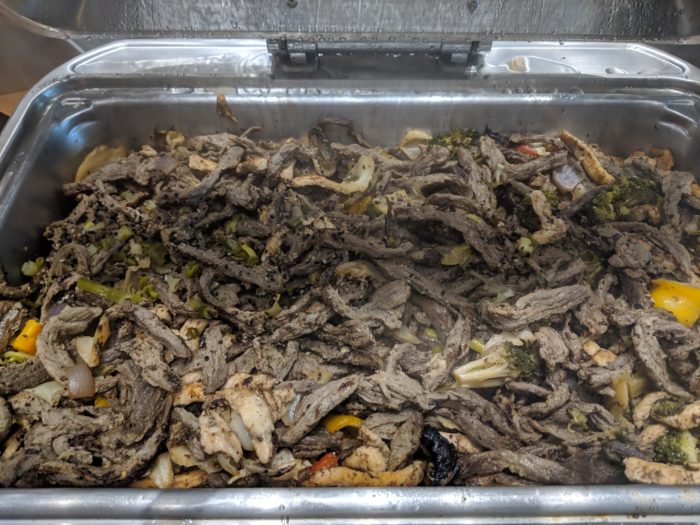My Honest Take on the Keto Diet
March 24, 2019 1:33 pm / Posted in Articles, Blog, NutritionWhether you’ve heard about it while browsing the Internet, on the radio, or from a friend, chances are you’ve heard about the keto diet. It is very trendy right now and tonnes of people are trying it. So what gives?
The keto diet is a high-fat, moderate protein, very low-carb diet; typically, about 70-80% of your calories come from fat, 15-25% from protein, and 5% from carbs. Basically, you eat lots of non-starchy vegetables like greens, meat, and fats like olive oil. Proponents of the keto diet recommend it for several reasons – including to help children with epilepsy – but most people now try it because they want to lose weight.

I’ve gotten a lot of questions about whether the keto diet is good or not; people ask me if it’s healthy, if it’s worth it, and if they should try it. Here’s why you should try the keto diet:
-
- Quick results: If you follow the keto diet, you can see results within the first couple of weeks, which is helpful for people who need to see results quickly to feel motivated. I have a couple of clients who have gone keto and they’ve seen excellent results so far.
- Simplicity: The basic formula for meals is meat + non-starchy vegetables + fat, there are tonnes of recipes online because it’s trendy right now, and there are even modifications for people who are vegetarian. This makes it relatively straightforward to cook, eat, and stay keto.
- Yum-factor: Fat tastes good, so it’s easy to enjoy keto food since it’s rich in fat. Steak with butter, anyone?
But there are a couple of reasons why it might be tricky for people:
- Learning curve: Most of us are used to eating a lot of carbs and it’s a mental adjustment to get into the keto mindframe. I’d say anyone looking to start a keto program will have to commit at least 10-15 hours to informing themselves on the process, prepping their kitchen, and finding recipes that are appetizing to them. It’s a big shift in lifestyle.
- Prep time: Eating keto means that you’ll be hard-pressed to find suitable foods on the go, so you’ll have to prep your own food. This is a commitment; you’ll have to shop, plan, and prep your meals ahead of time so you’re always prepared with a keto-friendly snack or meal.
- Animal-based: There are vegetarian and vegan options for keto recipes, but it is much harder to go and stay keto if you don’t eat meat or animal products. A lot of recipes are heavy in meat, dairy, or eggs, so if that’s not your bag, keto could be challenging for you.
- Keto flu: Getting started on keto can be difficult. The first few days can make you very irritable, and the “keto flu” (a feeling of fatigue and general discomfort that occurs when your body is adjusting to the change from a moderate-high carb diet to a high-fat diet, caused by a lack of micronutrients like sodium) can kick in after your third or fourth day, lasting up to a week or two. Fortunately, most people will be fine after the first week, although some may need to take supplements to make up for the lack of micronutrients.
- Little wiggle room: There is no room for cheating on the keto diet because eating carbs will take you out of ketosis (let’s call it fat-fuelled mode). You have to be prepared to not eat any carbs, especially at the beginning, but this diet is really a lifestyle change and there will be no going back to a moderate- or high-carb diet if you want to stay keto.
- Hard on digestion?: Some people report digestive issues once they start a keto diet. Other people simply cannot eat diets that are high in fat, for example, people will any gallbladder issues, who have a problems digesting fats. The keto diet can be hard on some people’s systems.

My verdict? It depends on the person. The keto diet has pros and cons and what really tips the metaphorical scale is the person trying it. As you know, my general approach to nutrition is not to bash or evangelize any one type of diet because results, feeling, and sustainability all depend on the individual.
If you’re considering the keto diet, I’d recommend consulting with a nutrition coach or dietitian before starting out – or come see me for help. And, most importantly, keep in mind that this is a lifestyle change, so if you try it for a month and feel like it’s not working for you, don’t be afraid to find an alternative. The real question is: is it a good fit for you? Do you see yourself making this lifestyle change over the long term? Does it make you feel good?
Category: Articles, Blog, Nutrition
Posted by Burke
